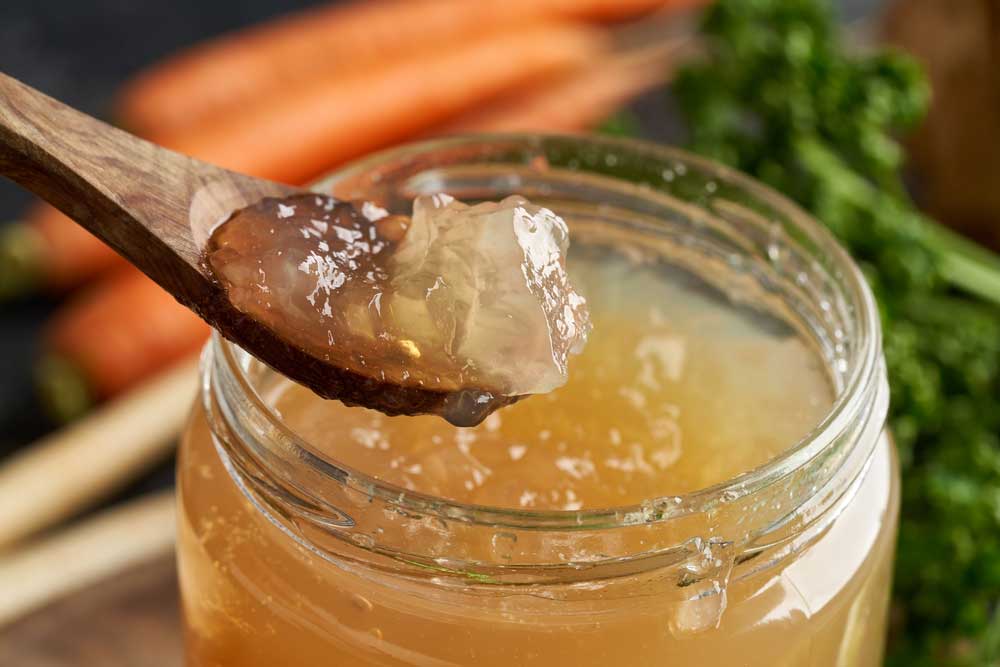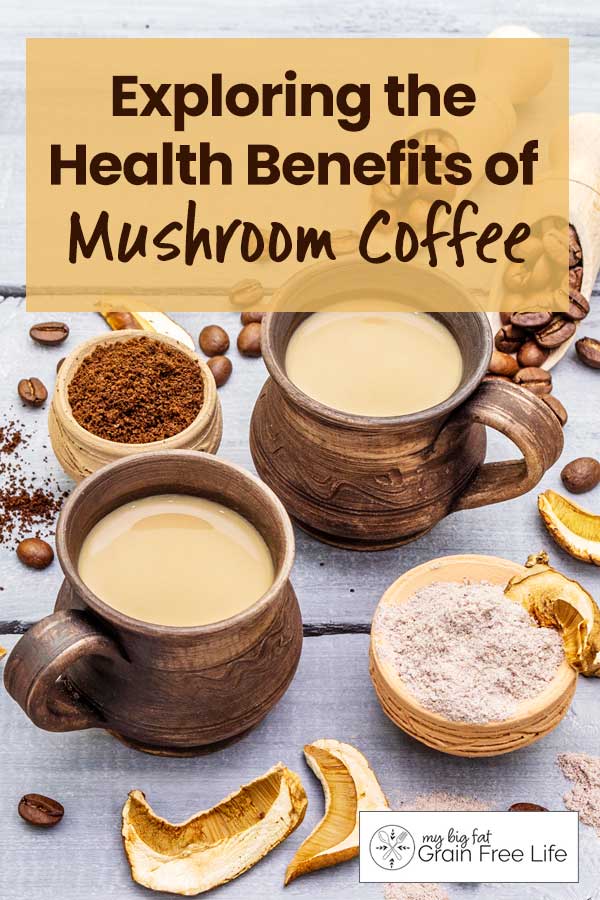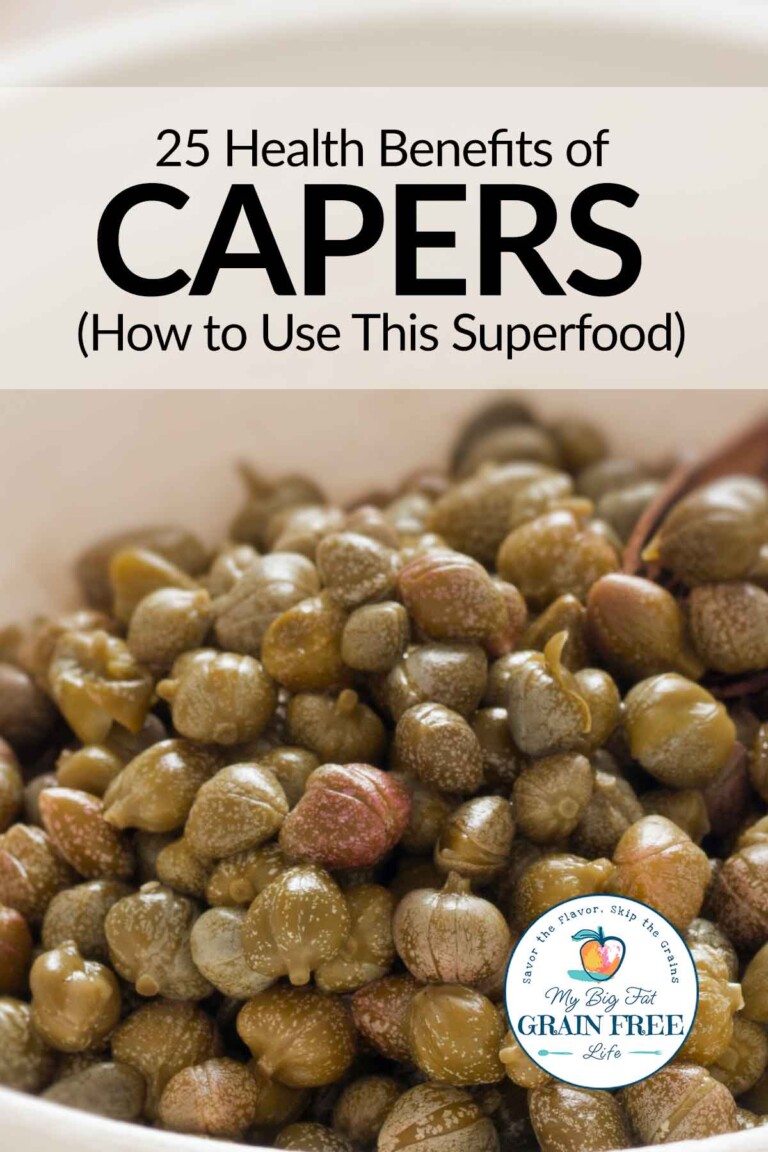Souping: What You Should Know + Benefits & Downsides
This post may contain affiliate links. If you make purchase after clicking a link, I may receive a commission at no extra cost to you.
Last Updated on January 23, 2024
Have you ever hear of souping? Discover the ins and outs of souping, including its benefits and downsides so you can make an informed decision about this diet trend.

Souping
I am not one to jump the bandwagon of fad diets, but a soup diet sounds amazing to me! Soup has always been the ultimate comfort food, in my opinion.
I like to make healthy soups and portion them out and freeze them for easy meals. I love adding loads of root vegetables and chicken stock to my Instant Pot and then blending them up into a thick and hearty bowl of butternut squash and parsnip soup.
So…back to souping! What exactly is souping, and what are its benefits and downsides?
We’ll take a look at the different types of souping, the health benefits it offers, how it affects your body, and much more. So let’s dive in and discover everything you need to know about souping!
What is Souping?
Souping involves consuming primarily soups as a way to nourish and detoxify the body. It’s believed to provide numerous benefits, such as promoting weight loss, boosting immunity, improving digestion, and increasing energy levels.
By incorporating a variety of nutrient-rich ingredients into soups, individuals can easily obtain essential vitamins, minerals, and antioxidants in a convenient and flavorful way.
The History of Souping: From Ancient Times to Modern Trends
The concept of souping is not a new phenomenon. Throughout history, cultures around the world have embraced soups as a staple food due to their ease of preparation, versatility, and nutrition benefits.
In ancient times, soups were often used as a way to stretch ingredients and make the most out of limited resources. Today, souping has evolved into a wellness trend that combines health-conscious eating with culinary creativity.
How Does Souping Work?
Souping involves replacing regular meals with various types of soups, which are often made from fresh vegetables, herbs, and spices.
Souping allows for customization based on personal preferences and dietary needs. Whether enjoyed as a short-term cleanse or as a long-term dietary approach, souping offers a delicious and nutritious way to support your health goals.
Different Types of Souping: Broths, Purees, and Detox Soups
When it comes to souping, there are various techniques and recipes that you can explore. The three main types of souping are broths, purees, and detox soups.
Souping with Broths
Broths are typically made by simmering bones, vegetables, and herbs for an extended period, resulting in a flavorful liquid packed with nutrients. The slow and gentle simmering process allows the flavors to meld together, creating a rich and satisfying broth.
The bones used in broths can come from a variety of sources, such as chicken, beef, or fish. Each type of bone adds its unique flavor profile to the broth. It’s easy to make your own homemade chicken stock!
Vegetables like onions, carrots, and celery are commonly added to enhance the taste and nutritional value of the broth. You can even use the greens from the top of some of these veggies – like carrot leaves and celery leaves for enhanced nutrition.
The herbs used can range from classic choices like bay leaves and thyme to more exotic options like lemongrass and star anise. Don’t forget to add turmeric for benefits too! The end result is a versatile broth that can be enjoyed on its own or used as a base for other soups.
Souping with Purees
Purees involve blending cooked vegetables into a smooth consistency. This type of souping is an excellent option for individuals who prefer a thicker and heartier soup.
The vegetables used for purees can vary widely, allowing for endless flavor combinations. Popular choices include butternut squash, white sweet potatoes, and carrots. These vegetables are cooked until tender and then blended with a liquid, such as broth or cream, to achieve the desired consistency. The result is a velvety and comforting soup that is both visually appealing and delicious.
Souping with Detox Soups
Detox soups, as the name suggests, are designed to cleanse and detoxify the body. These soups often contain ingredients like leafy greens, cruciferous vegetables, and herbs known for their detoxifying properties.
Greens such as kale and spinach, as well as collards, mustard greens, and turnip greens are packed with vitamins, minerals, and antioxidants that support the body’s natural detoxification processes. Cruciferous vegetables like broccoli and cauliflower contain compounds that help the liver in its detoxification functions.
Herbs like cilantro and parsley are known for their ability to aid in the elimination of toxins from the body. Detox soups can be enjoyed as part of a cleanse or simply as a nutritious addition to your regular diet.

Smoothie & Juice Souping
Smoothie & juice souping is a method that involves replacing meals with nutrient-dense smoothies, juices, and soups to support detoxification and nourishment.
During a smoothie, juice, and souping diet, individuals typically consume a combination of freshly made fruit and vegetable smoothies, as well as cold-pressed juices and nourising soups.
These meal replacements are often prepared using a wide range of ingredients such as leafy greens (spinach, kale), fruits (berries, citrus), vegetables (carrots, cucumbers), herbs (mint, parsley), spices (ginger, turmeric), and superfoods (chia seeds, spirulina).
Souping for Gut Health: Nourishing Your Digestive System
Souping can contribute to a healthy digestive system by providing easily digestible nutrients and promoting the growth of beneficial gut bacteria.
When soups are made with ingredients like bone broth and fiber-rich vegetables, they can nourish and soothe the digestive tract, aiding in digestion and reducing inflammation.
Souping for Weight Loss: Fact or Fiction?
Souping has often been touted as a miracle weight-loss solution. While it’s true that consuming soups can help control portion sizes and reduce overall calorie intake, it’s essential to approach souping for weight loss with caution.
According to research conducted by nutrition experts at PubMed, individuals who regularly incorporate soup into their diet often enjoy a higher-quality overall diet. Numerous studies have demonstrated that consuming soup is associated with a decreased risk of developing obesity.
Extreme soup diets that restrict food groups and severely limit calories may lead to short-term weight loss. However, they are not sustainable in the long run and may result in nutrient deficiencies. It’s always best to consult a healthcare professional before embarking on any weight-loss journey.
Understanding the Nutritional Value of Souping
Souping allows you to incorporate a wide variety of vegetables, legumes, whole grains, pseudo grains, and lean proteins into your meals. By using quality ingredients and balance in your soups, you can create a well-rounded and nourishing meal.
The Science Behind Souping: How It Affects Your Body
Scientific research supports many of the health benefits associated with souping. The high water content in soups helps keep you hydrated, while the nutrients they provide support various bodily functions.
Souping also aids in digestion due to the breakdown of ingredients during the cooking process. This makes the nutrients more accessible to your body.
How Does Souping Work?
When you consume soups, your body receives a concentrated source of nutrients in an easily digestible form. The warmth and soothing consistency of soups can also promote feelings of satisfaction and comfort.
The liquid nature of soups can also help control portion sizes, making it less likely for you to overeat. This can be particularly beneficial for individuals trying to manage their weight or those with a smaller appetite.
Potential Downsides to Souping
While souping has numerous benefits, there are a few potential downsides to consider. Firstly, relying solely on soups for an extended period may result in inadequate protein intake, as most soups are not protein-dense.
Additionally, some store-bought soups may contain added sodium, preservatives, and artificial ingredients. It’s always best to opt for homemade soups or carefully read labels when selecting pre-packaged options.
How Long to Stay on a Soup Diet
The duration of a soup diet depends on your goals and individual needs. Some people choose to do short-term soup cleanses for a few days to kickstart healthier eating habits or recover from overindulgence.
Others incorporate souping into their long-term lifestyle as a way to maintain overall wellness. It’s essential to listen to your body and consult with a healthcare professional to determine the best approach for you.
What Are the Most Nutritious Soups for Souping?
When crafting nutritious soups, focus on incorporating a variety of colorful vegetables, lean proteins, and whole grains. Everyone remembers grandma’s chicken noodle soup and how you’d be given it at the first sign of sickness; it’s the same principles. The best soup to eat will be one packed with vegetables and healing broths.
Here are a few examples of highly nutritious soups:
- Chicken and Vegetable Soup: This soup offers a good balance of protein, fiber, and vitamins, making it filling and healthy choice.
- Lentil Soup: Lentils are an excellent source of plant-based protein and fiber, making this soup both nutritious and satisfying. Just make sure you add in a good soak to remove lectins from lentils to enhance the absorption and ease digestion.
- Black Bean Soup: Bursting with flavor, black bean soup is not only delicious but also loaded with plant-based proteins. These legumes are packed with essential amino acids, making them an excellent choice for meeting your protein needs while promoting heart health.
- Thai Coconut Curry Soup with Shrimp: If you crave exotic flavors while desiring a boost in protein intake, this soup is for you! The combination of succulent shrimp and creamy coconut milk creates a delightful fusion of taste and nutrition.
- Fish Chowder: If you’re a seafood lover, fish chowder is a fantastic option to boost your protein intake. Made with fresh fish like salmon or cod, this creamy soup provides omega-3 fatty acids along with high-quality proteins that are essential for brain function and heart health.
How to Incorporate Souping into Your Daily Routine: Recipes and Tips
Now that you understand the different types of souping and its health benefits, you might be wondering how to incorporate it into your daily routine.
- One easy way to start souping is to replace one meal a day with a nourishing soup. There are countless soup recipes available that cater to various dietary preferences, so you’re sure to find something that suits your taste.
- Another tip is to make a big batch of soup at the beginning of the week and portion it out for quick and convenient meals throughout the week. This can save you time and ensure that you always have a healthy option readily available.
- Add turmerc and black pepper to any soup you make to enhance the antiinflammatory effects.
Important Nutrients to Include in Your Soup
When creating your own soups, it’s essential to pay attention to the nutrients you include. Here are a few key nutrients to consider:
- Fiber: Incorporate vegetables, legumes, and whole grains to ensure an adequate fiber intake, which supports digestive health.
- Protein: Include lean protein sources, such as chicken, turkey, or legumes, to provide essential amino acids for cell repair and growth.
- Healthy Fats: Add a source of healthy fats, such as avocado or olive oil, to promote satiety and aid in the absorption of fat-soluble vitamins.
- Antioxidants: Choose colorful vegetables and herbs rich in antioxidants to protect your cells from damage and reduce inflammation.
Best Foods to Add to Soup
Besides the typical soup ingredients, there are several additional foods you can add to enhance the nutritional value and flavor of your soup:
- Leafy Greens: Add nutrient-packed greens like spinach, kale, or Swiss chard to boost the vitamin and mineral content of your soup.
- Herbs and Spices: Incorporate aromatic herbs and spices like basil, oregano, turmeric, or ginger to add depth of flavor and potential health benefits.
- Citrus Fruits: Squeeze some lemon or lime juice into your soup to brighten the flavors and provide a boost of vitamin C.
- Whole Grains: If you are not on a grain-free diet, adding cooked whole grains like quinoa or brown rice can add texture and provide additional fiber and nutrients.
Types of Broths to Use
The type of broth you use can significantly impact the flavor profile and nutritional value of your soups. Here are a few options:
- Chicken Broth: Made from simmering chicken bones, this broth adds a rich and savory flavor to your soups.
- Vegetable Broth: Perfect for vegetarian or vegan soups, vegetable broth provides a light and delicate base.
- Bone Broth: Known for its collagen content, bone broth offers additional health benefits such as supporting joint health and promoting gut healing.
Souping FAQs
Can I Lose Weight by Eating Soup?
Yes, you can lose weight by incorporating soup into your diet. Soups are generally low in calories and high in water content, which can help you feel fuller for longer. Additionally, if you choose soups that are packed with vegetables and lean proteins, they can provide essential nutrients while keeping your calorie intake in check.
Is Soup Good for Belly Fat Loss?
Soup can be a helpful addition to a healthy eating plan aimed at reducing belly fat. Since soups are often low in calories and high in fiber-rich vegetables, they can contribute to creating a calorie deficit necessary for fat loss.
Can I Eat Soup Everyday?
Yes, you can eat soup every day as part of a healthy eating plan. Soups are an excellent way to include various nutrient-rich ingredients such as vegetables, lean proteins, beans and legumes into your diet. However, it is essential to ensure that your soups are well-balanced and include a variety of ingredients to meet all your nutritional needs.
Is Soup Healthy?
Soup can be a healthy option depending on the ingredients used. Homemade soups tend to be nutritious choices. They provide essential vitamins, minerals, fiber, and hydration.
It’s important to read labels when purchasing store-bought soups as some may contain high levels of sodium or unhealthy additives.
How Often Should I Do the Souping Diet?
Some people choose to do a short-term souping cleanse for a few days to jumpstart weight loss or reset their eating habits. Others incorporate soups into their regular meal plan as a healthy option on a more long-term basis.
It’s important to consult with a healthcare professional or registered dietitian before starting any restrictive diet plan to ensure it aligns with your specific needs and goals.
Delicious Soup Recipes
- Butternut Squash and Parsnip Soup
- Beef and Cabbage Soup
- Hearty Fish Chowder
- Seafood Soup
- AIP Soups
- Black Bean Chili
- Crustless Chicken Pot Pie
- Creamy Chicken and Sweet Potato Soup (Dairy-free)
- AIP Chicken Noodle Soup
Final Thoughts
Soups and souping can be a great way to improve overall health and incorporate more healthy foods into your diet.
Vegetable soups, in particular, are an excellent choice as they are packed with nutrients and low in calories. The best part is that you can make a large pot of vegetable soup and have it on hand for several meals throughout the week.
Broth-based soups like clear soup or chicken soup are also a tasty way to enjoy the benefits of souping.
Soups can also be part of a soup cleanse, where you consume mainly soups for a period of time. This can provide slimming advantages as soups are often low in calories but high in nutrition.
Additionally, soups can serve as a comforting alternative to solid meals and provide good fats for those following nutritious diets. So next time you’re looking for a good idea for a meal, consider enjoying a bowl of soup for its many health benefits.












